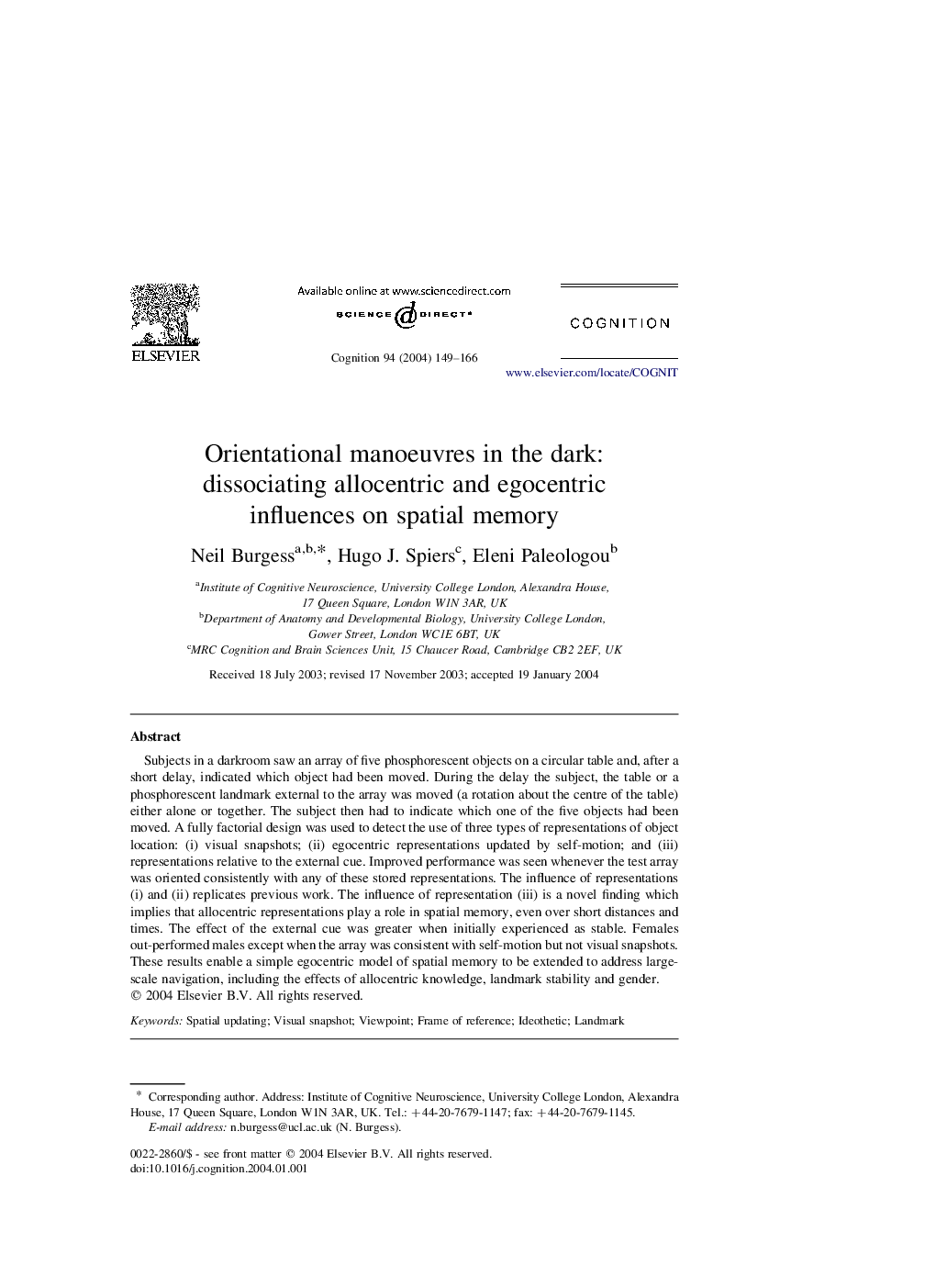ترجمه فارسی عنوان مقاله
مانور جهت یابانه در تاریکی: جدا کردن تاثیر جامع و خودمحورانه در حافظه فضایی
عنوان انگلیسی
Orientational manoeuvres in the dark: dissociating allocentric and egocentric influences on spatial memory
| کد مقاله | سال انتشار | تعداد صفحات مقاله انگلیسی |
|---|---|---|
| 77222 | 2004 | 18 صفحه PDF |
منبع

Publisher : Elsevier - Science Direct (الزویر - ساینس دایرکت)
Journal : Cognition, Volume 94, Issue 2, December 2004, Pages 149–166
ترجمه کلمات کلیدی
به روز رسانی مکانی؛ عکس فوری بصری؛ دیدگاه ؛ چارچوب مرجع؛ نقطه عطفی
کلمات کلیدی انگلیسی
Spatial updating; Visual snapshot; Viewpoint; Frame of reference; Ideothetic; Landmark

